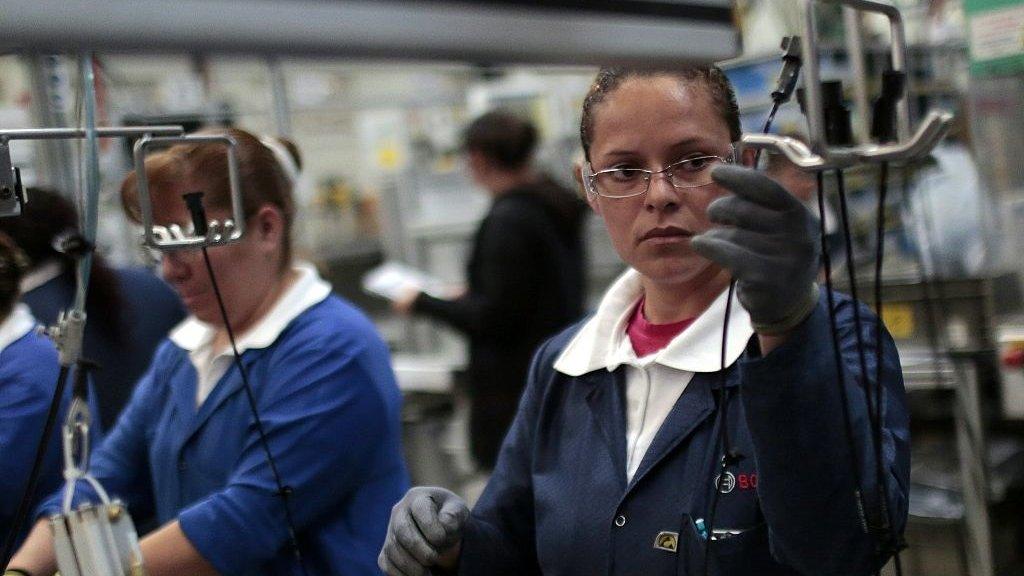US accuses Chinese billionaire of evading $1.8bn in tariffs
- Published

Chinese billionaire Liu Zhongtian has been indicted in the US over allegations he evaded $1.8bn (£1.5bn) in tariffs on aluminium imports.
Prosecutors accuse Mr Liu of using the aluminium company he founded to smuggle huge amounts of the metal into the US.
The firm, China Zhongwang Holdings, did not immediately respond to a BBC request for comment.
The Wall Street Journal reported a warrant has been drawn up for Mr Liu's arrest.
The newspaper said the 55-year-old is believed to be in China, which does not have an extradition treaty with the US.
Mr Liu, China Zhongwang Holdings and others were indicted on various charges including conspiracy, wire fraud and money laundering.
The businessman and his family are worth $2.8bn, according to Forbes magazine.
Prosecutors allege, external that through a complex financial fraud scheme huge amounts of aluminium were disguised as "pallets" that were not subject to customs duties.
The indictment also alleges a "massive money laundering scheme" was used by the defendants to funnel hundreds of millions of dollars through shell companies to US-based aluminium companies controlled by Mr Liu.
"This indictment outlines the unscrupulous and anti-competitive practices of a corrupt businessman who defrauded the United States out of $1.8bn in tariffs due on Chinese imports," United States Attorney Nick Hanna said in the statement.
"Moreover, the bogus sales of hundreds of millions of dollars of aluminium artificially inflated the value of a publicly traded company, putting at risk investors around the world."
The US grand jury indictment was reached in May and unsealed this week.
It is reportedly one of the largest tariff-related cases brought by the US Justice Department and comes at a testing time for US-China trade relations.
This week, negotiators wrapped up a round of high-level talks without meaningful progress toward resolving their long-running dispute, which has seen tariffs imposed on billions of dollars worth of one another's goods.
Most of the charges carry a maximum prison term of 20 years.
- Published21 June 2019

- Published17 May 2019

- Published1 August 2019
